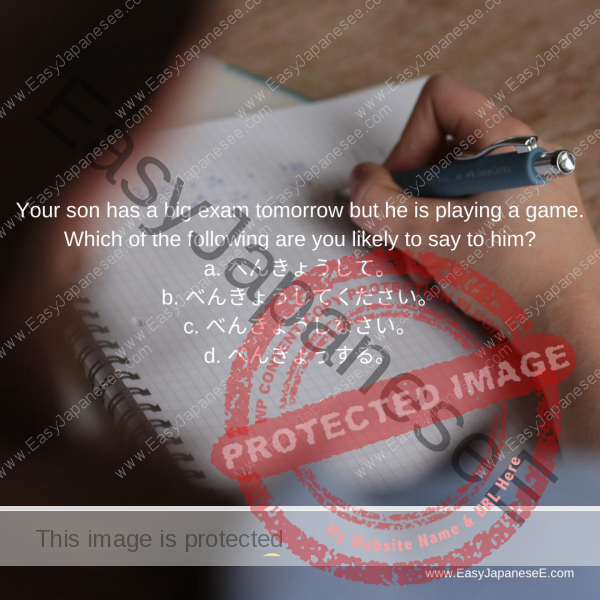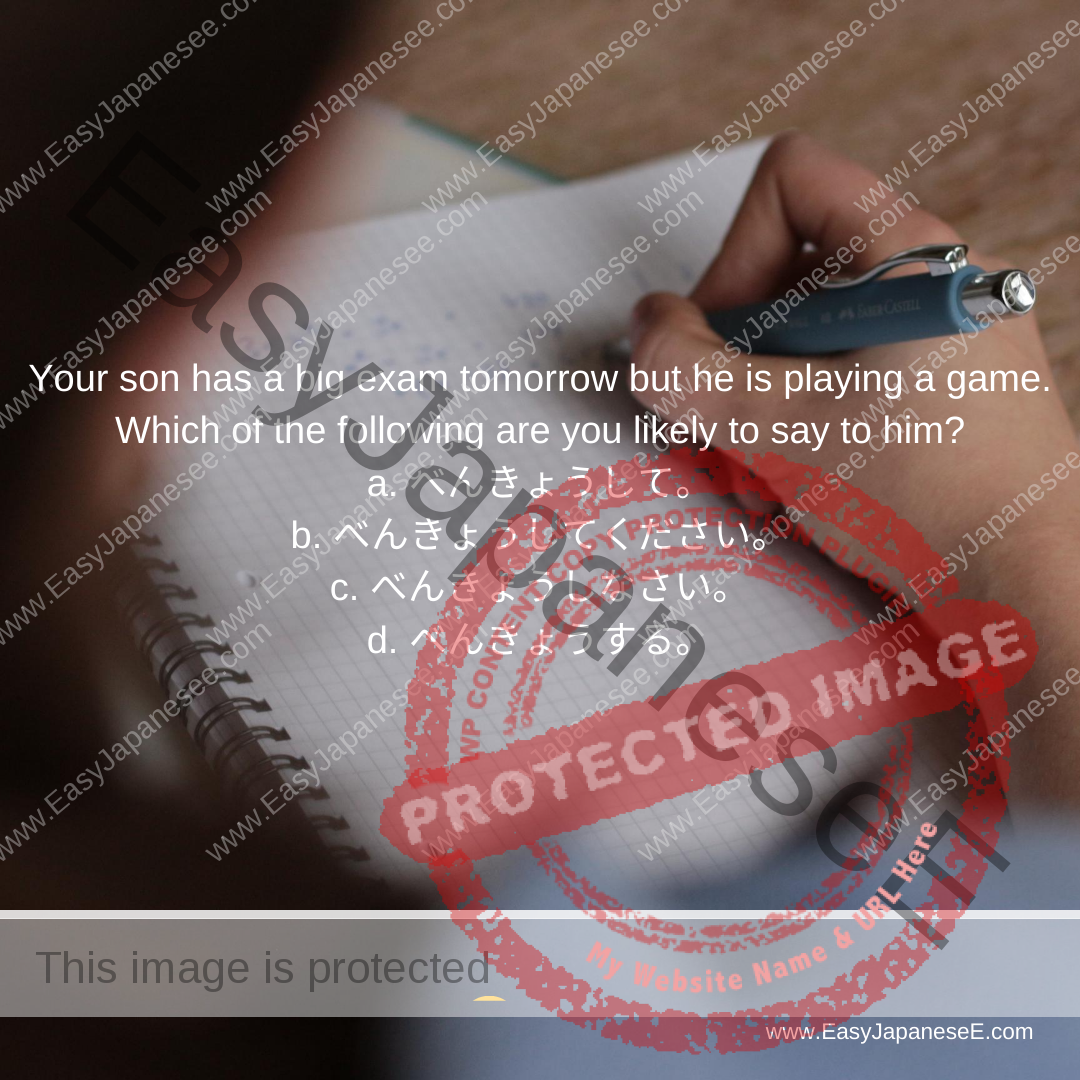
Your son has a big exam tomorrow but he is playing a game. Which of the following are you likely to say to him?
a. べんきょうして。
b. べんきょうしてください。
c. べんきょうしなさい。
d. べんきょうする。
I have heard some people say telling your child to study doesn’t help, but as a parent and teacher, I have told my children/students to study many times. In Japanese I would say c. べんきょうしなさい。
[verb stem]なさい is a firm but polite enough command. I don’t say that to anybody older and/or those who outranks me but as a parent and/or a teacher, that is an OK expression to use to your children and students. If you are a boss, you can say that to those who report to you, too.
If you say a. べんきょうして。 or b. べんきょうしてください。, that sounds like you are asking the other person to do something for you, but studying is not for you but for themselves, so ~なさい is better.
d. べんきょうする。is a statement and does not have any sense of request or command.
More examples with ~なさい:
しずかにしなさい。
Be quiet.
先生(せんせい)の話(はなし)を聞(き)きなさい。
Listen to what your teacher says.
先生(せんせい)の言(い)うことを聞(き)きなさい。
Listen to and obey your teacher.
漢字(かんじ)はていねいに書きなさい。
Write Kanji characters carefully.
手(て)を洗(あら)いなさい。
Wash your hands.
放課後(ほうかご)職員室(しょくいんしつ)に来(き)なさい。
Come to the staff room after school.
ゴミを拾(ひろ)いなさい。
Pick up rubbish.
コロナウイルスに気をつけなさい。
Watch out for the corona virus.
Adding よ or ね at the end makes it a bit more personal.
きょうはバスで帰(かえ)りなさいね。
You catch a bus home today!
しっかり準備(じゅんび)しなさいよ。
You prepare properly!


One Reply to “~なさい”